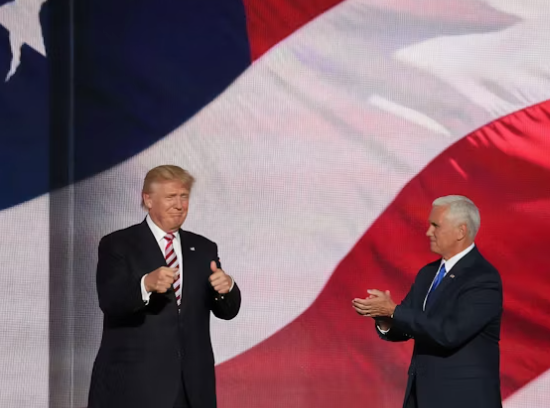$NOC $LMT $XOM
#HarrisvsTrump #USelection2024 #IranPolicy #USIranRelations #Diplomacy #Sanctions #OilPrices #Geopolitics #DefenseStocks #MiddleEastPolitics #TrumpIran #HarrisDiplomacy
The U.S. presidential election on November 5 is anticipated to have significant implications for U.S. foreign policy, particularly regarding Iran. Democratic candidate Kamala Harris, who currently serves as Vice President, is expected to uphold President Joe Biden’s ongoing diplomatic engagement with Tehran, aimed at fostering dialogue despite various challenges. Harris’ known support of the Joint Comprehensive Plan of Action (JCPOA), otherwise known as the “Iran nuclear deal”, suggests that her future policy might focus on restoration and renegotiation of the agreement in order to prevent Iran from developing nuclear weapons. Financial experts and geopolitical analysts predict that the continuation of Biden’s diplomatic approach could lead to reduced geopolitical tensions in the Middle East, potentially stabilizing crude oil markets, leading to smoother supply chains and possibly moderating oil prices. This might not only impact global oil companies like $XOM but also affect broader markets with exposure to energy prices.
On the other hand, former President Donald Trump, the Republican candidate, would likely return to a policy of “maximum pressure” should he win office. This policy during his first term included strict sanctions aimed at economically crippling Tehran and isolating it diplomatically. His insistence during his 2016-2020 presidency on leaving the JCPOA caused drastic changes in global oil markets. Prices surged as traders anticipated supply shocks given Iran’s importance in global crude supply chains. Another round of harsh sanctions could once again disrupt global oil flow. Any potential conflict escalation under Trump’s leadership could also have further ramifications on energy suppliers and defense contractors like $NOC and $LMT, as security risks in the region rise. For markets and investors, Trump’s hawkish stance could create volatility in commodity prices and defense-related equities due to geopolitical risks.
Harris also displayed a unique balancing act of diplomatic engagement combined with a potentially firmer tone at times. In early October, she surprised analysts by signaling her willingness to take tougher positions if necessary, hinting that her administration could increase pressure if Iran failed to honor its commitments under any potential negotiations. This stance could appeal to moderates who are cautious about appearing weak on national security, while not alienating investors who prefer the predictability of diplomacy under which markets are less volatile. The markets might also view this calculated toughness as a cautious middle ground between Biden’s diplomacy and Trump’s maximum pressure, with the key difference being reduced uncertainty in the energy and defense sectors.
Ultimately, whether Harris or Trump wins, the U.S. stance on Iran will be a crucial driver of oil prices, global energy markets, and defense stocks. However, it’s worth noting that significant sanctions under a Trump presidency could isolate Iran further from global markets, which might create opportunities for competitors in the oil industry to fill the supply gaps. Under Harris, a renewed diplomatic push could potentially lead to market stabilization over time, prompting a small recovery in battered industries related to oil and gas, while easing just a bit of pressure on energy-intensive sectors. Investors will closely watch how each candidate handles the powerful sanctions tool and its ripple effect on global commerce.











Comments are closed.